Cambridge-AstraZeneca PhD Students
Cambridge-AstraZeneca PhD Students
2023 Cohort
Rebecca Rickman
Project Title: Mechanisms of synovial fluid lipid-mediated neuronal sensitisation in arthritis
Supervisor: Ewan SJ Smith (University of Cambridge) and Dr Fraser Welsh (AstraZeneca)
Becky obtained her B.Sc in biochemistry from Imperial College London. During her third year undergraduate she undertook a year placement at the Institute of Cancer Research, London, where she used high content live single cell imaging to study the dynamics of signalling networks during cytokinesis. She joined the Smith Lab in 2018 as an MPhil student, investigating the role of cannabinoid signalling in mouse and naked mole-rat sensory neurons during inflammation. In 2019 she continued in to her PhD.
Carolina Azeredo
Project Title: Inhibiting oncogenic RhoA signalling using Stapled Peptides
Supervisor: Dr. Helen Mott (University of Cambridge) and Dr. Jefferson Revell (AstraZeneca)
Hello! I am Carolina, a PhD student in Biochemistry and a member at Darwin College. When not working, you can find me playing volleyball, cooking new recipes, or wandering around the parks listening to audiobooks or podcasts. My research falls within the field of making intractable targets tractable using peptide therapeutics and I am applying this to inhibit the oncogenic signalling of the Rho family small GTPases RhoA and Rac1.
2022 Cohort
Project Title: Functional actin regulatory antibodies as in vivo expressed biologics
Supervisor: Dr Jenny Gallop (University of Cambridge) & Dr Claire Dobson (AstraZeneca)
Pia is a first-year PhD student at The Gurdon Institute, University of Cambridge and AstraZeneca. Prior to her degree at Cambridge, she completed her MSc at St. George's University of London in Biomedical Sciences followed by a year long association with GSK. Her PhD involves an investigation of functional actin regulatory as in vivo expressed biologics.
Project Title: VHHs for the prevention and control of Campylobacter spp.
Supervisor: Dr Andrew Grant (University of Cambridge) & Dr Steven Rust (AstraZeneca)
Anya completed her undergraduate degree in Natural Sciences from Durham University in 2019. Following this, she completed an MPhil in the Biochemistry department at the University of Cambridge. She worked as a Research Associate for Isogenica, a biotechnology company
Project Title: Building Chromatographic Retention Times
Supervisor: Prof. Jonathan Goodman (University of Cambridge) & Dr Jennifer Kingston (AstraZeneca)
Having studied Natural Sciences at Cambridge and specializing into chemistry, I undertook a research project in my final year with the Goodman group looking into simulating reaction dynamic effects in organic systems, especially the CBS reduction. I found a deep enthusiasm for research and was lucky enough to stay n and pursue a new avenue of investigation into using machine learning methods to predict chromatographic outcomes. I am incredibly thankful to AstraZeneca for their support and access to their fantastic range of data to allow this research to take place.
Project Title: Developing GABAA Receptor Modulators
Supervisor: Dr Paul Miller (University of Cambridge) & Dr Steven Rust (AstraZeneca)
Caroline completed an undergraduate degree in Experimental Psychology at Magdalen College, Oxford before coming to Cambridge to study for an MPhil in Basic & Translational Neuroscience. During her MPhil she completed a 6 month research project on GABA A receptor modulation in Dr Miller's laboratory. Bitten by the GABA bug she decided to stay in the Miller Group for a PhD generously funded by AstraZeneca to continue her work on developing novel modulators, with a focus on improving the affinity of modulators previously identified by the group and addressing problems with their therapeutic translation.
Sarah Phillips
Project Title:
Supervisor: Prof David Spring (University of Cambridge) & Richard England (AstraZeneca)
2021 Cohort
Project Title: Structure-guided discovery of a Neuropilin-1 inhibitor
Supervisor: Dr Taufiq Rahman (University of Cambridge) & Dr Marianne Schimpl (AstraZeneca)
I am an enthusiastic PhD student at the University of Cambridge, studying to develop an inhibitor against Neuropilin-1 as a way of minimising angiogenesis and metastasis for cancer therapy. I am always hungry to absorb various insights and broaden my perspectives.
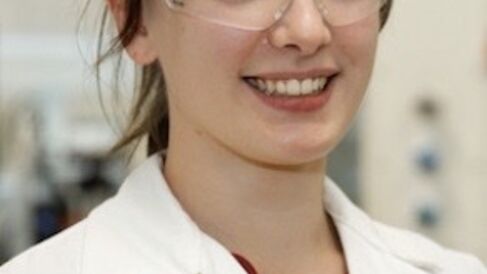
Sophie Day-Riley
Project Title: The synthesis of novel proteolysis targeting chimeras (PROTACs) for targeted degradation of CK2
Supervisor: Professor David Spring (University of Cambridge) and Ben Whitehurst (AstraZeneca)
Sophie is a second year Chemistry PhD student in the Yusuf Hamied Department of Chemistry, under the supervision of Professor David Spring. Her research focuses on the synthesis of next generation therapeutics. She completed her MChem at the University of Manchester with Professor David Procter, where she worked on the use of samarium(II) diiodide in natural product synthesis. Sophie also undertook a 12-month industrial placement in Medicinal Chemistry at GSK Stevenage, where she worked on the synthesis of novel PROTACs.
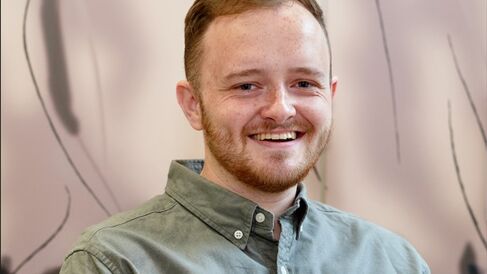
Luke Paine
Project Title: Neuroimmune interactions in visceral pain
Supervisor: David Bulmer and Ewan St. John Smith (University of Cambridge) and Dr Fraser Welsh (AstraZeneca)
Luke completed his master’s in pharmacology at the University of Oxford, where he investigated the role of histamine in brain development. Prior to this he studied Biomedical Sciences at the University of Southampton, where his research project focused on the functional importance of cholinergic signalling in maintaining circadian rhythmicity. Luke joined the University of Cambridge in 2021 within the Department of Pharmacology and his PhD project focuses on the role of cytokine signalling in visceral pain.
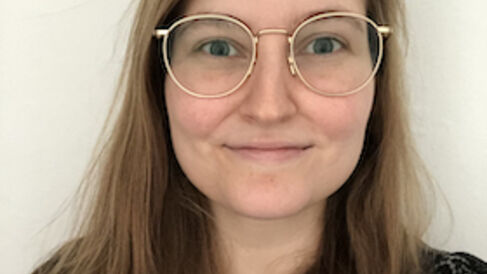
Emma Belcher
Project Title: Mechanisms of signal transduction in the TGF-beta receptor superfamily
Supervisor: Marko Hyvönen (University of Cambridge) and Taiana Maia de Oliveira (AstraZeneca)
I am a second year PhD candidate in the Hyvonen Group in the Department of Biochemistry. I use structural biology approaches to understand how TGF-beta receptors transduce signals across the plasma membrane. I completed an MSci in Biochemistry with Medical Biochemistry at the University of Bristol in 2021. My research experience includes a Lister Summer Studentship in the Dodding Lab at Bristol and 11 months as a research assistant in the Sturrock Lab at the University of Cape Town.
Project Title: The role of Sall4 in cell fate determination.
Supervisor: Dr Brian Hendrich (SCI) & Dr Ben Steventon (Genetics) (University of Cambridge) & Dr Laura Rosenberg (AstraZeneca)
Oluwaseun's research is focused on understanding how cells make decisions during early development. It encompasses a range of model systems including mouse ESCs, gastruloids and zebrafish to investigate different developmental contexts. Alongside this, I share my experience as a #blackgirlinscience on several social media platforms (@seuninscience), as well as offer advice and support for future postgrad students.
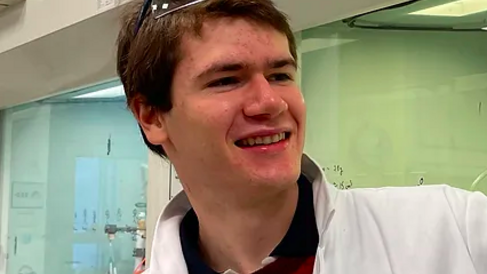
Maximilian Kadarauch
Project Title: Incorporating chiral cations into mainstream transition metal catalysis
Supervisor: Robert Phipps (University of Cambridge) and Thomas Moss (AstraZeneca)
I am a second-year PhD student in the Phipps group at Cambridge. My PhD has focused on the discovery of enantioselective Pd-catalysed reactions. Most recently, I have focused on the enantioselective intramolecular Pd-catalysed dearomatisation of phenols. I was an undergraduate at Oxford, where I did my Master’s project in the Donohoe group, on the synthesis of molecules bearing two stereogenic axes.
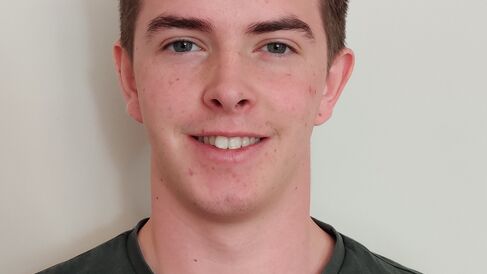
Thomas Harman
Project Title: Characterising the dynamic nature of the GPCR–G protein interaction and its role for signalling
Supervisor: Daniel Nietlispach (University of Cambridge) and Joseph Shaw (AstraZeneca)
Tom Harman is a second year PhD student in Daniel Nietlispach’s lab in the Department of Biochemistry. Tom is interested in G protein-GPCR-ligand ternary complex conformational dynamics and how an understanding of variability in solution ensembles influences receptor signalling. The Nietlispach lab primarily uses solution NMR spectroscopy to investigate the dynamic nature of GPCR conformations using a variety of ligands and G protein subtypes but is also developing biophysical techniques to evaluate binding kinetics with applications to GPCR drug discovery.
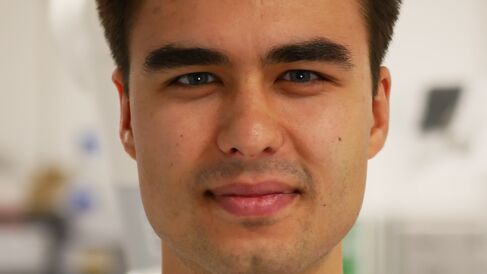
Daniil Soloviev
Project Title: Physical Organic Chemistry of H-Bonding
Supervisor: Professor Chris Hunter (University of Cambridge) and Martin Packer (AstraZeneca)
I first came to Cambridge from the Netherlands in 2017, starting a degree Natural Sciences. For my Master's research project, I joined the Hunter group, working on polarisation of hydrogen bonds in amides. I greatly enjoyed my time in the Hunter group, and so after graduating, I stayed in the group for a PhD. I now continue my research on polarisation, as well as doing computational work to analyse and predict the behaviour of supramolecular complexes in solutions.
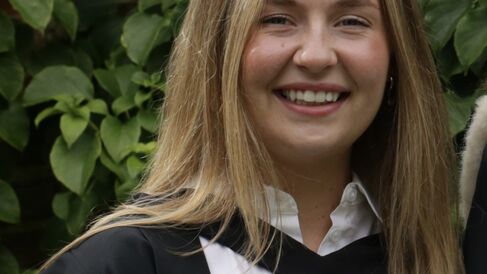
Galway Ivey
Project Title: Harnessing the Inverse Electron Demand Diels Alder (IEDDA) reaction in combination with substrate hijacking for the study of RNA methylation
Supervisor: Gonçalo Bernardes (University of Cambridge) and Henry Blackwell (AstraZeneca)
Galway is a second year PhD student in the Department of Chemistry and studied Natural Sciences here as an undergraduate too, specialising in Chemistry. She is a member of the Bernardes research group, whose interests lie at the interface of Chemistry and biology. Her research involves using bioorthogonal chemistry to develop new strategies to analyse RNA modifications, aiming to understand how these modifications exert different biological functions.
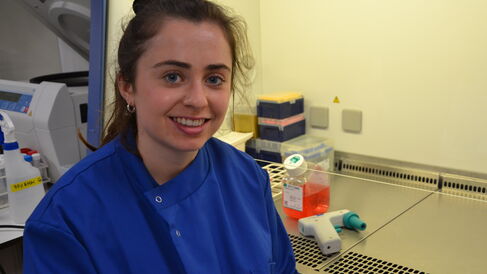
Annabel Cardno
Project Title: Cellular determinants of efficiency of AURKA targeting by small molecule PROTACs
Supervisor: Dr Catherine Lindon (University of Cambridge) and Dr Karen Roberts (AstraZeneca)
I have lived and studied in Cambridge for 5 years, completing my Bachelor’s in Natural Sciences before moving on to my PhD. My PhD project aims to characterise the cell biology of PROTACs, a new modality of drug which simultaneously bind a target of interest and the cell’s ubiquitin-mediated protein degradation machinery, causing proximity induced ubiquitination and degradation of the protein target. They aren’t 100% effective yet and I aim to uncover subcellular parameters which influence this.
2020 Cohort
Project Title: Polarisation Effects on H-Bonding Properties of Small Molecules
Supervisor: Dr Christopher Hunter (University of Cambridge) & Dr Markus Schade (AstraZeneca)
I attended school in Glossop and Manchester, before moving to Cambridge for my undergraduate where I graduated with an MSci in Natural Sciences. I did my Part III project in the laboratory of Chris Hunter before starting my PhD there. I also spent a summer internship as an AZ undergraduate intern in analytical and structural chemistry. My research focuses on cooperativity in different H-bonding systems due to polarisation effects on specific functional groups.
Mahri Park
Supervisor: ProfessorDavid Spring (University of Cambridge) and Anne-Chloe Nassoy (AstraZeneca).
Mahri is a third year PhD student in the Department of Chemistry, under the supervision of Professor David Spring. Her research focuses on the novel generation of Fc-fusion compounds for the half-life extension of therapeutic peptides. Her research interests also include antibody-drug conjugates (ADCs). For the past year Mahri has been a visiting researcher at Cancer Research UK Cambridge Institute, where she conducts tissue culture and assesses the cytotoxicity of ADCs developed in the Spring group.
Project Title: Towards Inhibition of K-Ras using Helical Peptides
Supervisor: Helen Mott (University of Cambridge) and Jefferson Revell and Sarah Ross (AstraZeneca).
Hannah is a third year Biochemistry PhD student in the Mott/Owen lab at the University of Cambridge. Her PhD is focused on developing peptide inhibitors of oncogenic K-Ras. She completed her undergraduate degree in Biochemistry at the University of Nottingham, with a year in industry at AstraZeneca. During her undergraduate undertook research in a pharmacology lab where she developed an interest in Drug Discovery. Her PhD allows her to foster this interest whilst developing new skills in protein engineering.
Alyssa Crabb
Project Title: Elucidating the Molecular Mechanisms of TLR4 Activation by LPS
Supervisor: Prof Nick Gay (University of Cambridge) and David Fisher (AstraZeneca).
I studied Biochemistry at the University of Oxford. My Part II thesis project was conducted in the laboratory of Prof Matt Higgins’ and involved attempts to refold members of the RIFIN family of proteins which allow P. falciparum to modulate the host immune system. I am a third-year PhD student in Prof Nick Gay’s lab at the Department of Biochemistry, University of Cambridge.
Yusra Abdelhamid
Project Title: Multicomponent alkene azidoarylation by anion-mediated dual catalysis
Supervisor: Professor Matthew Gaunt (University of Cambridge) and Dr Peter Lindsay-Scott (AstraZeneca).
Yusra is a third year PhD student in the Gaunt Group. Her PhD research has been focussed on the development of new methodologies for the synthesis of amines using photoredox chemistry.
Sophie Willis
Project Title: Roles of ubiquitination and replication stress in cyclin E1 high cancers
Supervisor: Professor Heike Laman Gaunt (University of Cambridge) and Dr. Paul Waring (AstraZeneca).
Sophie completed her undergraduate degree in Genetics at the University of Leeds in 2016, including a year as an industrial placement student at MedImmune. Since graduating and alongside her PhD, she is a member of the Oncology Translational Pathology group at AstraZeneca, developing IHC and ISH assays to support pharmacodynamic assessments and patient selection strategies on a range of clinical projects. Her PhD project investigates the roles of ubiquitination and replication stress in cyclin E1 high breast & ovarian cancers.
2019 Cohort
Project Title: Multicomponent photoredox mediated synthesis of α-trialkyl-α-tertiary amines.
Supervisor: Professor Matthew Gaunt (University of Cambridge) & Claudia deFusco(AstraZeneca)
Georgia is a final year PhD student in the Department of Chemistry, working in the group of Professor Matthew Gaunt. Over the course of my PhD, she has developed photoredox-mediated transformations for comlex amine synthesis. In addition to her lab-based research, she is an experienced and enthusiastic scientific communicator, as well as a passionate advocate for underrepresented groups in Chemistry.
Nicola Ashman
Project Title: Peroxide-Cleavable Linkers for Antibody-Drug Conjugates
Supervisor: Professor David Spring (University of Cambridge) and Ryan Greenwood (AstraZeneca).
I am a fourth year student in Professor David Spring's group, whose PhD research has focused on generating new linkers for antibody-drug conjugates. Since then, my work has also involved applying this technology to small molecule prodrugs.
Paul Bacos
Project Title: Enantioselective Functionalisation of α-Amino Radicals
Supervisor:Professor Robert Phipps (University of Cambridge) and Scott Boyd (AstraZeneca).
P. David Bacoș did his undergraduate studies at the University of Bristol, where he spent his final year project working on the total synthesis of prostanoids with Professor Varinder Aggarwal. After graduating in 2019, he started working with Professor Robert Phipps at the University of Cambridge on the development of asymmetric radical reactions.
Michelle Meng
Project Title: TRPV4-mediated colonic afferent activation is driven by mucosal ATP and glutamate
Supervisor: Dr David Bulmer (University of Cambridge) and Dr Fraser Welsh (AstraZeneca).
Michelle obtained her BSc in Biomedical Sciences from Imperial College London where in her final year she explored the role of MSK1 in inflammatory heat hyperalgesia. Then she completed an MSc in Pharmacology at the University of Oxford where she investigated the behavioural and transcriptional effects of prebiotics D-serine and D-alanine on anxiety. She joined the Bulmer Lab in 2019 where her project focuses on how TRPV4 stimulates colonic afferents in the gastrointestinal tract.
Timothy Birkle
Project Title: Machine learning enables screening for neuroprotective treatments in primary neuron-glia cultures
Supervisor: Guy Brown (University of Cambridge) and Michael Perkinton (AstraZeneca).
Tim is a final year PhD student in Guy Brown’s lab in the Biochemistry Department and is affiliated with Christ’s College. Having focused on Neurobiology during his undergraduate degree and then Immunology as a Research Assistant, his PhD research has combined this experience and investigated the role of microglia, the resident innate immune cells of the brain, in neurodegenerative disease. Recently, this work has contributed to the understanding of microglial Syk (spleen tyrosine kinase) within inflammatory neuronal loss.
Project Title: Exploring the Therapeutic Potential of Protein PAMs of GABAA Receptors
Supervisor: Professor Matthew Gaunt (University of Cambridge) & Dr J.Henry Blackwell (AstraZeneca)
Ollie is a PhD student at the Department of Pharmacology, investigating antibody-based therapies that target GABAA receptors and trying to improve their delivery to the central nervous system. The AstraZeneca-funded project has a focus for protein engineering, expression and characterisation as well as preclinical in vivo studies. Previously, Ollie studied Biochemistry at the University of Bristol and worked at GlaxoSmithKline as part of an industrial placement, where he used biophysical techniques to characterise protein-protein interactions for drug discovery.
Tomas Deingruber
Project Title: Structure-activity relationship studies of a hit against M. abscessus driven by phenotypic screening
Supervisor: Professor David Spring (University of Cambridge) and Tom Hunt (AstraZeneca).
Tomas is a final-year PhD student in the Spring Group at the Yusuf Hamied Department of Chemistry in Cambridge. Before joining the group, he completed his masters project in the group of Professor Jason Chin at MRC Laboratory of Molecular Biology, focusing on synthesis of multi-functional unnatural amino acids. During his PhD, Tomas has worked on projects trying to address antimicrobial resistance, which included synthesis of peptide-drug conjugates and elaboration of a small-molecule screening hit against bacterial targets
2018 Cohort
Emily Talbot
Project Title: Peroxide-Cleavable Linkers for Antibody-Drug Conjugates
Supervisor: Dr Svetlana Khoronenkova (University of Cambridge) & Dr Michael Perkinton (AstraZeneca)
I have just completed my PhD in Svetlana Khoronenkova’s group in the Department of Biochemistry. Broadly, my research interests lie in the crosstalk between genome instability and innate immunity, and elucidating mechanisms of poorly understood, rare diseases. Specifically, my PhD research has focused on how innate immune activation by self-DNA drives neuroinflammation by affecting the function of microglial cells, the immune cells of the central nervous system.
Katie Barker
Project Title:Targeting growth factors to treat visceral pain
Supervisor: David Bulmer & Ewan St John Smith (University of Cambridge) & Dr Fraser Welsh (AstraZeneca)
Maria Eznarriaga
Project Title: Rational development of small molecules that can inhibit both PARP and additional protein target of the angiogenesis pathway
Supervisor: Taufiq Rahman (University of Cambridge) & Dr James Robinson (AstraZeneca)
Rebecca Riddle
Project Title: An in vitro model of inflammatory bleeding
Supervisor: Matthew Harper (University of Cambridge) & Dr Karin Jennbacken & Dr Kenny Hansson (AstraZeneca)
Jessica Scheel
Project Title: Studyng the function of BCL11A interaction with SWI/SNF complex in TNBC
Supervisor: Walid Khaled (University of Cambridge) & Dr Davide Gianni (AstraZeneca)
Katharine Davis
Project Title: Mechanism and specificty of interaction of activin A with type I receptors
Supervisor: Marko Hyvonen (University of Cambridge) & James Hunt (AstraZeneca)
Jessica Corry
Project Title: The role of the STAT proteins in ACK-driven tumourigenesis
Supervisor: Darerca Owen (University of Cambridge) & Dr Kate Wickson (AstraZeneca)
Vivien Lechner
Project Title: New Catalytic Strategies for Chemical Synthesis
Supervisor: Matthew Gaunt (University of Cambridge) & Dr Thomas McGuire (AstraZeneca)
Lucia Trevisan
Project Title: Transmembrane signal transduction
Supervisor: Chris Hunter (University of Cambridge) & Nichola Davies (AstraZeneca)
